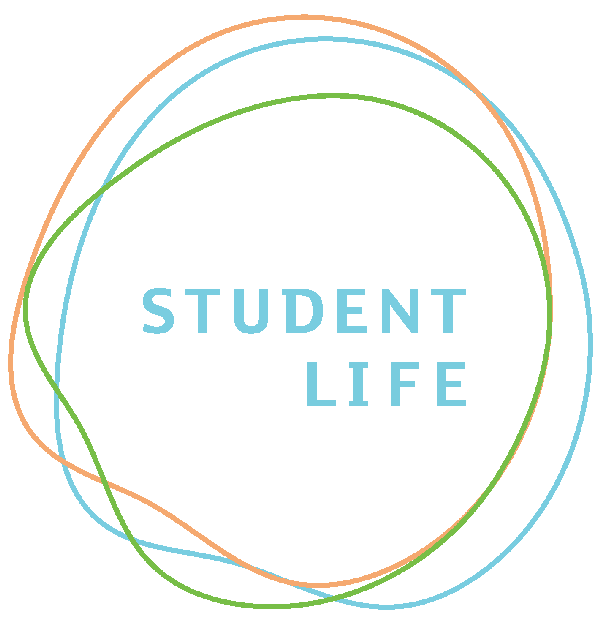Counselling
Our Counselling Service is dedicated to providing you with quality counselling and emotional support through a range of different pathways.
Our counselling team offer both in-person and online support. You can email studentlife@tees.ac.uk with general enquires, or a specific request to access our counselling service: counselling@tees.ac.uk.
We would like every student to have a positive learning experience, however sometimes this can be affected by issues and feelings that are difficult to resolve. These feelings often impact on other areas of your life and may affect your academic studies, your relationships with others, or your personal choices. This is when counselling can help. Counselling provides a safe and confidential space in which to explore your feelings or anything that that may be affecting your ability to function well. Often, therapeutic work has a lifelong legacy and can equip you with the necessary skills to navigate your way through future challenges.
We want you to become a more effective learner in your personal and academic life. We can help you to develop your life skills, resilience and mental health. You can find out more information by viewing our FAQs.
Eligibility for counselling
To access counselling you will need to be an enrolled student currently on a course at Teesside University.
How to access counselling
To access the Counselling Service, you will need to complete a counselling registration form.
There is a requirement for you to confirm on the registration form, that you have read and understood the Pre-therapy agreement. This contains important information regarding confidentiality, data protection and the counselling process.
Once we have received your completed registration form, you will receive an acknowledgement of your request for support. Whilst we try to offer assessments as soon as possible, timescales can vary depending on the level of demand for the service at peak times in the academic calendar.
You will be contacted via your student email account with an offer of a 30-minute assessment appointment. Following your assessment, you will then be placed on a waiting list until a counselling appointment becomes available.
If you need general advice or guidance, you can speak to one of the Student Life Enquiry Advisors in the Student Life building, which is located in the Campus Heart.
T: 01642 342277
Student Life opening hours
Monday - Friday: 8.00am - 6.00pm
Appointment accessibility
We recognise that some students may have accessibility needs when attending an appointment. This includes, but is not limited to, learning, communication and sensory difficulties as well as mobility, visual and hearing impairments. If you would like to discuss any particular requirements, please email studentlife@tees.ac.uk in advance of your appointment and we can discuss any adaptations required to meet your individual needs.
Our staff
All of our Counsellors are fully qualified and work within the BACP, BPS or BABCP codes of ethics and practice. The theoretical perspectives vary across the team with some working in a solution focused way and others within a relational framework. This means that we can match up your therapeutic needs to a suitable counsellor. In a situation where we feel that our service is unable to meet your needs, for example, if it is assessed that you require longer term therapy or a specialist therapy provider, we will signpost or refer you into a suitable service.
We also work in partnership with an external counselling provider called Spectrum Life to enhance our ability to provide our students with counselling support at the point of need. We reserve the right to share basic assessment details with them if a referral is made.
Confidentiality and record keeping
Is counselling confidential?
All counsellors in the service work to a high level of confidentiality. They work within BACP or BPS or BABCP codes of ethics and practice. If you would like more details about these codes of ethics please ask your counsellor. These are the main exceptions to confidentiality:
- If you are at risk of harm to yourself or another person.
- If you reveal that a child is being or is in danger of abuse.
- If the counsellor is compelled to reveal information by a court order.
Otherwise the Counselling Service will not reveal anything to anyone unless you ask us to do so. This means that your academic school or tutor will not know that you are having counselling unless you want us to tell them. This also applies to your family or partner. If either your School or your family contact us, we will maintain this confidentiality, unless you have given us permission otherwise.
However, if we feel that you are at a high level of risk to yourself or others, and only if, we will look at maximising support for you through a multi-disciplinary approach which may involve talking or sharing information with other health professionals inside or outside the University. We will always seek your permission to do this, however if you are in crisis this may not always be possible.
Does the Counselling Service keep records of my counselling?
Our policy is to keep confidential case notes for six years in conformity with the General Data Protection Regulation (GDPR) and University Policy. These case notes are a brief record of the session along with other relevant written materials. The notes do not express any medical opinion on the part of the counsellor. All notes and personal details are subject to a high degree of confidentiality and kept securely. They are only accessible to Counselling Service Staff. The fact that you are attending counselling will not appear on your course records, overall student record or on your medical records.
Our services
One-to-One Counselling
The Counselling Service offers one-to-one counselling within a time limited framework across a variety of different formats. We operate from the Meeting House, which is located in King Edwards Square, a quiet space that suits in-person work. But for those who are unable to get into campus, have placement commitments or personal reasons why in-person work would be difficult, our Counsellors offer video, audio, email and live chat counselling through Microsoft Teams.
Please contact counselling@tees.ac.uk if you have any further questions, or refer to the 'Self-help Resources' section where you will find an information brochure which should answer any questions you may have about counselling and enable you to make a considered choice about the most suitable therapeutic format for you.
Our Counsellors all have their own specialisms and personal therapeutic interests that include trauma work, issues that have come out of early attachment relationships, animal assisted therapy, sand tray therapy and difficulties with anger among others.
Grief and Loss Pathway
Most people experience grief when they lose something or someone important to them. This could be:
- the death of someone to whom you have had a close relationship
- a broken-down relationship - intimate/friendship or a family member
- coming to terms with a new medical diagnosis
- the loss of a valued pet
- or any other life experience which significantly changes the way you connect to the world.
We recognise that everyone's experience of grief is different and how this is experienced can feel destabilising.
Here at Teesside University, we have a 'Grief and Loss Pathway' to support anyone in these circumstances. Moving through the stages of the pathway will depend on your individual situation. You may find that the support within stage one meets your needs, however some will require support through all stages.
Stage 1: In the first instance, we have put together an information pack to help you understand what often happens to us when we are processing a loss. Whatever you may be going through emotionally, mentally, or physically is likely to be a 'normal' human response to what has happened, although it may not feel anything like normal to you. The pack will help you to understand how you are feeling and help you put in place strategies to support yourself.
Stage 2: If the information pack does not answer the questions you might have, or the feelings you are experiencing are ongoing, you can contact the Counselling Service via counselling@tees.ac.uk and request a 'Grief and Loss Session' which will be a one-hour session with a qualified counsellor where you can talk through what you are experiencing.
Stage 3: If after the 'Grief and Loss Session' you feel as though you would benefit from connecting from time to time with someone to talk through your process, you can make a request to be referred to our 'Listening Service'. You can access up to 6 sessions over a six-month period with one of our mental health specialists, who will provide a listening ear and an opportunity to talk through your feelings.
Stage 4: In most cases, given time, people will move naturally through the grief process and will start to come to terms with the loss. However, sometimes when the loss has been particularly traumatic or sudden, the grief can become stuck or 'complicated'. If this happens, the 'Listening Service' will then refer you to the Counselling Service for therapeutic one-to-one support.
Workshop Programme
In collaboration with the Mental Health and Wellbeing teams, the Counselling Service deliver a workshop programme supporting key issues that you may require support with. You may be referred to a workshop following your initial counselling assessment, however you can also request a place yourself. Our current workshops include:
- Understanding anxiety
- Sleep Hygiene
If this is something that you think you may be interested in, please email counselling@tees.ac.uk for further information.
Cost of services
The Counselling Services provided by Student and Library Services are offered free of charge.
Can't find what you're looking for?


